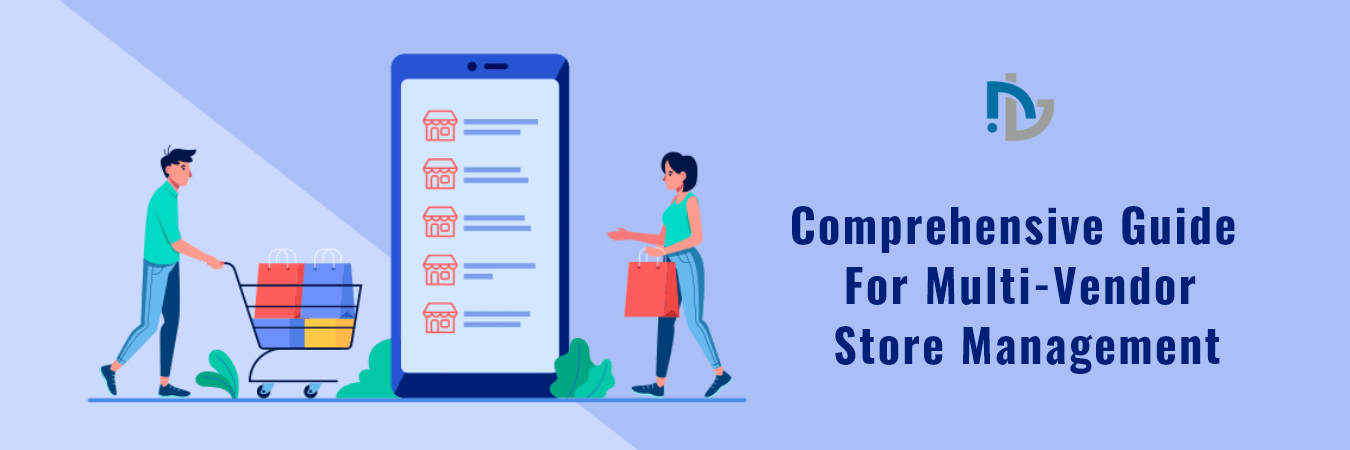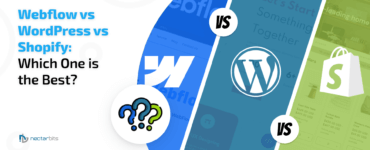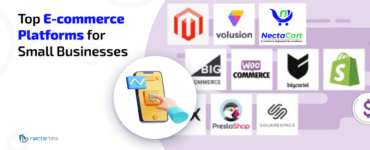Multi-Vendor Store Management: Meaning, Software benefits and More
Remember the time when we move from stall to stall and one vendor to another to search for a specific product. After a lot of back-and-forths, you will get the perfect product. Thanks to Amazon-like multi-vendor marketplaces that have aggregated the multiple vendors on one platform and enabled shopping from the comfort of the sofa.
Presently, the multi-vendor marketplaces offer products and services from every corner of the world. Even, during the pandemic, the marketplaces did a wonderful job. However, the things that look easy for the marketplaces are not easy to manage.
The multi-vendor store management includes- keeping the customer happy, managing millions of listed products, timely delivery of the orders, vendors performance, and settling vendor payment. The multi-vendor store needs to keep tabs on various things.
Various Aspects Of Multi-Vendor Marketplace That Needs To Managed
Inventory management
Managing a marketplace is no less tasking than managing a physical store. When it comes to inventory management, things become tricky. If the item that customers want to purchase is out-of-stock, then the customer drifts to other stores. Conclusively, poor inventory management leads to loss of opportunity. The marketplace can manage things in two ways- either they manage inventory by adding vendor’s products or allow vendors to upload products by themselves.
The latter choice is preferable because it saves a lot of time that’s utilized in acquiring and retaining the customers. Also, the vendors have more knowledge about products so that they can add descriptions, images, and categories of the products.
Read more: Differences Between Multi-Vendor And Single Vendor Ecommerce Marketplace
The store managers are allowed to approve/disapprove the products uploaded by vendors based on image quality and description content before they go live. This process is embedded for quality control purposes. The store admin needs to encourage vendors to upload the products using a rating system. If the vendor keeps the products in stock, they receive good ratings which keep them motivated for maintaining stock.
Shipping management
The products ordered by the customers are the first step towards a successful journey, which is completed with the final delivery of the order to the customers. The orders are organized and admin and vendors are enabled to view their status for hassle-free delivery.
The store admin can authorize some shipping methods that vendors are allowed to use as per their order shipping needs, which surges vendors’ satisfaction. The admin can either choose to partner with logistics companies like- FedEx, or create their own logistics system from order pickup at vendors to final delivery at customers’ end.
Vendor management
Allowing every vendor to sell on your marketplace can badly affect the multi-vendor store reputation. The reason being the bad quality product makes the customers unhappy. It’s important to keep the good vendors satisfied and delighted. Quick and easy payment management is a way to make it done. There are two ways to process vendors’ payment- paying vendors after a specific schedule (Weekly, monthly, or quarterly) or auto-sending the payment as soon as the order is processed.
Both options are great to select and work best in the favor of vendors. The admin should organize all the vendors in a table format to easily which vendors are paid and unpaid. Plus, PayPal is a good payment gateway option for store admin as it won’t require the vendors’ account information; instead, just the email address is enough.
Commission management
The marketplaces make dollars by charging a commission fee from the vendors. It’s a commission that vendors pay for using the platform. The marketplace charges different commissions for different products.
However, the commission should not be too high that discourages the vendors from the product listing. The marketplace generally employs an automated process that calculates fees and commissions against various products based on pre-defined parameters.
The platform keeps track of the most-selling category and knows the profits that the vendor is making, and then charges commission accordingly. For instance, the vendor is providing a flat 40% discount, then the marketplace should charge a commission to the amount that vendor is making in place of considering the full product price.
Sales report management
Sales report showcases how managers and vendors performing, that’s in the form of revenue. It determines whether the marketplace management system is working as expected. The sales report of every individual vendor helps in knowing their sales progress. If required, the vendor is warned or encouraged to improve the sales.
What’s more? When a management plan is rolled out, the sales report showcases the impact of changes on the performance.
Branding & marketing management
With Amazon-like multi-vendor stores Management in the market, building and improving brand awareness is vital to make your store’s presence felt in the competition. The marketplaces can leverage various social platforms, paid advertisements, email marketing, newsletters, and content marketing to increase customer engagement and stay on the top of their minds. The marketplaces can allow vendors to do their branding by providing selling space where the vendor can have their store banner, URL, and show the information they want.
Making unified return policies, facilitating easy returns, and ensuring money-back guarantees delivers the best experience to the customers.
Challenges in Multi-Vendor Store Management
Managing a multi-vendor marketplace comes with its own set of challenges. Coordinating multiple vendors, ensuring timely delivery, and maintaining quality control can be overwhelming. Additionally, handling vendor payments, resolving disputes, and keeping track of inventory can be complex tasks.
However, with the right software and strategies in place, these challenges can be overcome. By implementing effective vendor management systems, streamlining shipping processes, and optimizing inventory control, multi-vendor stores can thrive and provide a seamless shopping experience for customers.
Strategies for Success in Multi-Vendor Marketplace
To excel in the competitive world of multi-vendor marketplaces, it is essential to focus on branding and marketing efforts. By building a strong brand identity and engaging customers through social media, email marketing, and content creation, stores can stand out from the crowd and attract loyal customers.
Moreover, implementing user-friendly sales report management systems, offering flexible commission structures, and providing excellent customer service can help boost sales and drive growth. By continuously evolving and adapting to the changing market dynamics, multi-vendor stores can stay ahead of the competition and achieve long-term success.
Summing it up
The multi-vendor Ecommerce store development means building several interfaces for vendors, customers, payment, orders, shipping, and admin management under the hood. Despite managing a multi-vendor Ecommerce marketplace is challenging, which becomes easy when every interface is handled in parts.
Interested in creating a multi-vendor marketplace platform? If so, get connected with our business consultant that will let you know how our Ecommerce product helps your dreams come true. The comprehensive product works well for various industry verticals including pharmacy, grocery, laundry, food, beauty, home service, and others. Let’s talk!









